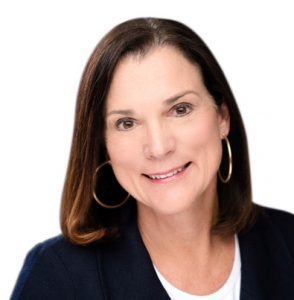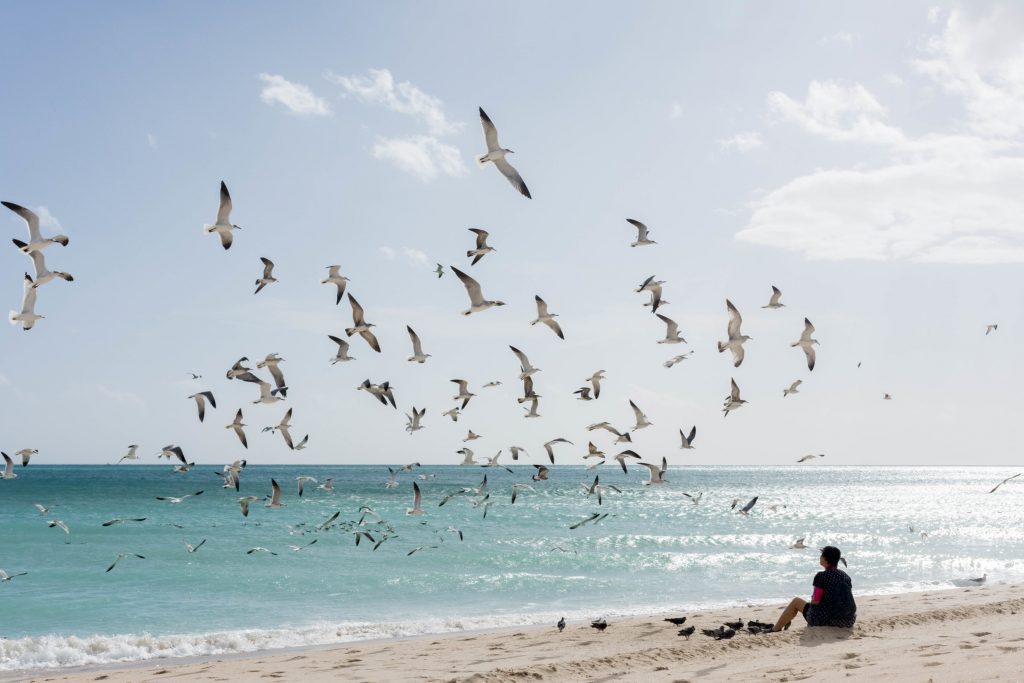Skift Take
For Visit Florida, the pandemic was a golden opportunity to boost its domestic market share while competitors remained restricted. And it worked — Florida's visitor numbers are on track for a record breaking year.
Join Skift editors and research analysts as we explore our 2021 theme: Reigniting Travel’s New Economy. Now in its eighth year, Skift Global Forum 2021 is where global industry leaders will come together to discuss travel’s great comeback, making this Forum the most consequential in its history.
After over a year of restrictions on travel, U.S. destinations are busy recouping their tourism revenue losses this year, particularly from the domestic market. But one state has been well ahead of the visitor rebound: Florida.
Starting last summer, the Sunshine State took a big bet on marketing for tourism amid a pandemic — it kept an open-door policy and targeted Floridians as well as to domestic travelers yearning for outdoor destinations with unrestricted movement.
The campaigns were so successful that Americans were driving up to 700 miles to reach the state’s beaches and resort towns. Visit Florida’s first quarter results for 2021 showed domestic visitor levels were just five percent below 2019 levels. The second quarter is expected to set a new record.
Dana Young, CEO of Visit Florida, will be speaking at Skift Global Forum in New York City on September 21-23.
Skift Editor’s Note: This interview has been edited for clarity and length.
Skift: To what main factors do you attribute Visit Florida’s success amid a global travel crisis?
Dana Young: At the beginning of a pandemic, the one thing that was constant with people was that they were looking for safe, outdoor themed activities where they could be in nature. They weren’t looking for crowds and for Florida that was a great thing because we have an abundance of all of that.
Early on our Governor Ron De Santis, made a decision that we would not be closed.

Dana Young, CEO of Visit Florida, will be at Skift Global Forum 2021 in New York City.
Visit Florida was able to get into market very, very early and start marketing our state. So we launched our in state campaign in August of 2020 — nobody was doing anything at that time — just encouraging Floridians to travel within the state of Florida, followed very quickly after that with a domestic drive market campaign.
Then very soon after that we launched our winter campaign in December, which was very broad in terms of the markets that we were hitting. In fact, for the first time ever, we started marketing in California, Oregon and Washington state, for a lot of reasons.
Join Us at Skift Global Forum in NYC September 21-23
Usually we don’t market there because it’s a long way away, but we have a lot of new direct flights into Florida from those states. There was a lot of social unrest in those states, environmental difficulties, and lockdowns. So we took the opportunity to say look, you don’t have a good situation right now but we can offer you something fantastic.
All preliminary numbers show that it worked, and that our market share increased tremendously across the country. And then in March we launched our national families campaign, “It’s time for a Florida vacation.”
As far as I know we were the only state that was marketing at all outside their borders until about April or May of this year, so we got seven months plus head start on everybody else. And we never looked back. We took a bold and aggressive approach, and it worked.
Skift: Pre-pandemic, lawmakers in Florida were debating whether or not Visit Florida should remain in existence. Then you joined as CEO. Has that mindset changed since?
Young: I’ve been here about two and half years, spent a good part of the first two years of my time here at Visit Florida educating policymakers on what we do, providing numbers to go with the discussion to prove our worth. And I think that is really the most important thing is to be able to not just talk about the fact that tourism is important and that what we do is important, but to actually show concrete facts and figures and numbers and dollars to go along with it.
For example the in-state and domestic ads, the reach was huge. Just on the Expedia platform alone, we were able to account for 1.14 million room nights sold. So it’s those sorts of things that were very helpful in sort of changing that mindset. And I had been in the legislature before, so I knew many of these people, and look they trust me, they know that I am not going to tell them something that’s not accurate.
All of that together, plus then the pandemic, they’re seeing how important tourism is and how it’s impacted all facets of the community — hospitality businesses, restaurants, not being able to find workers, you know, they realize how interconnected we are and how important we are.
Skift: Is sustainability part of your strategy?
Young: It always has been critical. First of all, sustainability is an important issue just to me personally — I’m a sixth generation Floridian, I grew up in the outdoors of Florida and I love our state, and it’s a very fragile state. We have a lot of very pristine places that need to be protected.
In 2019, Visit Florida launched its eco travel hub that highlights ways that visitors can be more sustainable and take a sustainable vacation.
But secondly, I might say most people come to Florida because of our natural resources, our beaches, our springs, the Everglades, and if we are not committed to preservation and protection of those environmental assets, then we’re hurting ourselves, we’re hurting the product that we have to offer. So it really becomes an economic decision as much as a moral decision to protect those areas.
This last session, Governor DeSantis signed into law the Florida Wildlife Corridor Act — it protects lands surrounding wildlife corridors in the state, particularly the Florida panther habitat, and the idea is to provide preservation easements, working with landowners in a very public-private partnership sort of way to create a sustainable corridor of the entire state. This is one example of things that we’re doing that are very innovative.
Skift: What’s top of mind for you as we head into the second half of the year, with an uncertain travel landscape in which more destinations are open, including California?
Young: To take the work that we’ve done and continue our very aggressive approach as we go forward into international markets. Our goal is twofold: one is to beat the projections for recovery, and two is to not just regain our market share, but to increase it domestically and internationally. We believe we’re well on track to do that, and we’re proud of the work we’ve done and we’re excited for the opportunities ahead.
Skift: And meanwhile, Canadians are coming back too.
Young: Look, they don’t usually love Florida in the summer, but I think that as soon as that border opens up fully, I expect them to buy a hat and some sunscreen and they’re going to be down here too.
The Daily Newsletter
Our daily coverage of the global travel industry. Written by editors and analysts from across Skift’s brands.
Have a confidential tip for Skift? Get in touch
Tags: ceo interviews, dmos, sgf2021, skift live, visit florida
Photo credit: Florida's outdoors and open door policy during the pandemic gave it a head start in tourism recovery. bebatut / Flickr Commons

